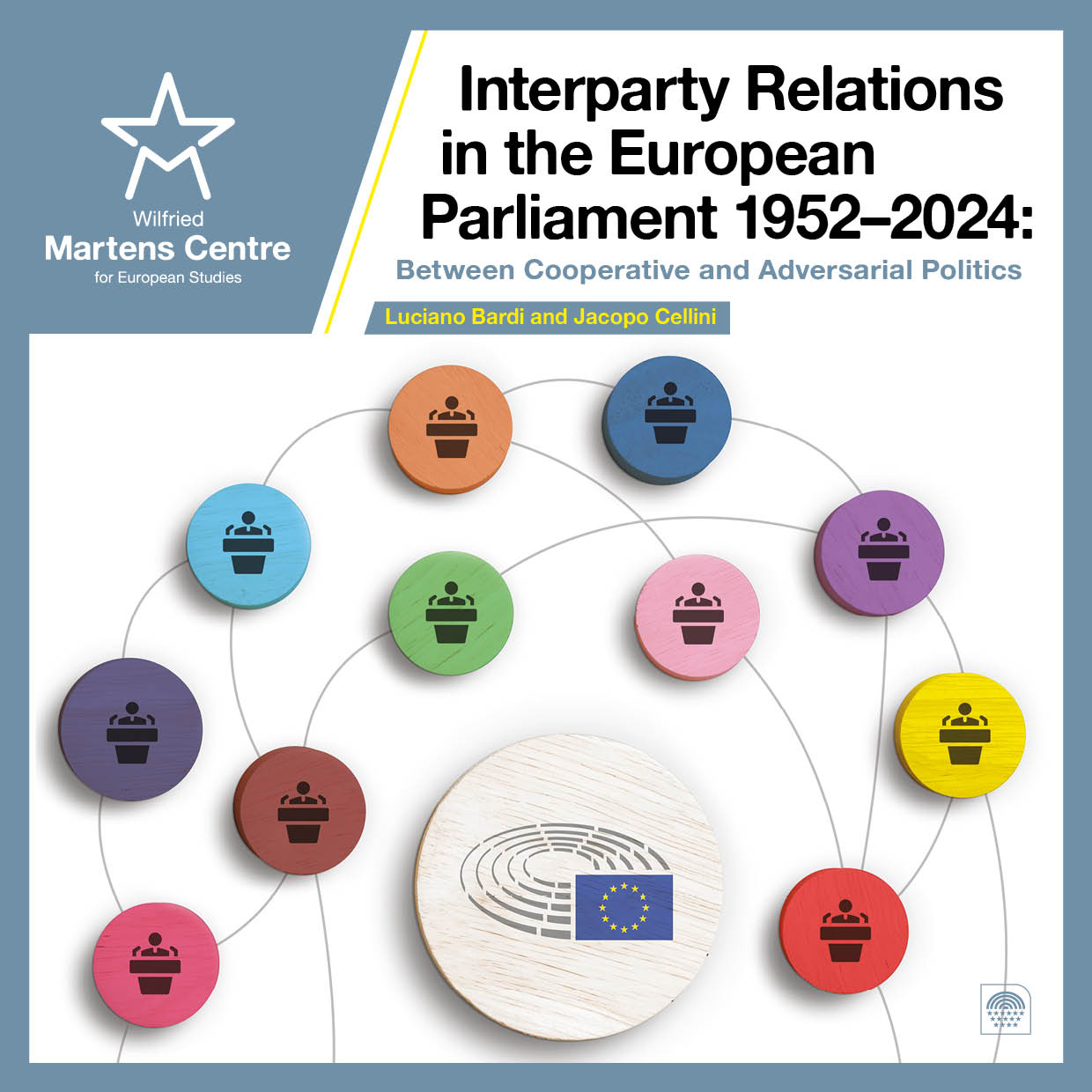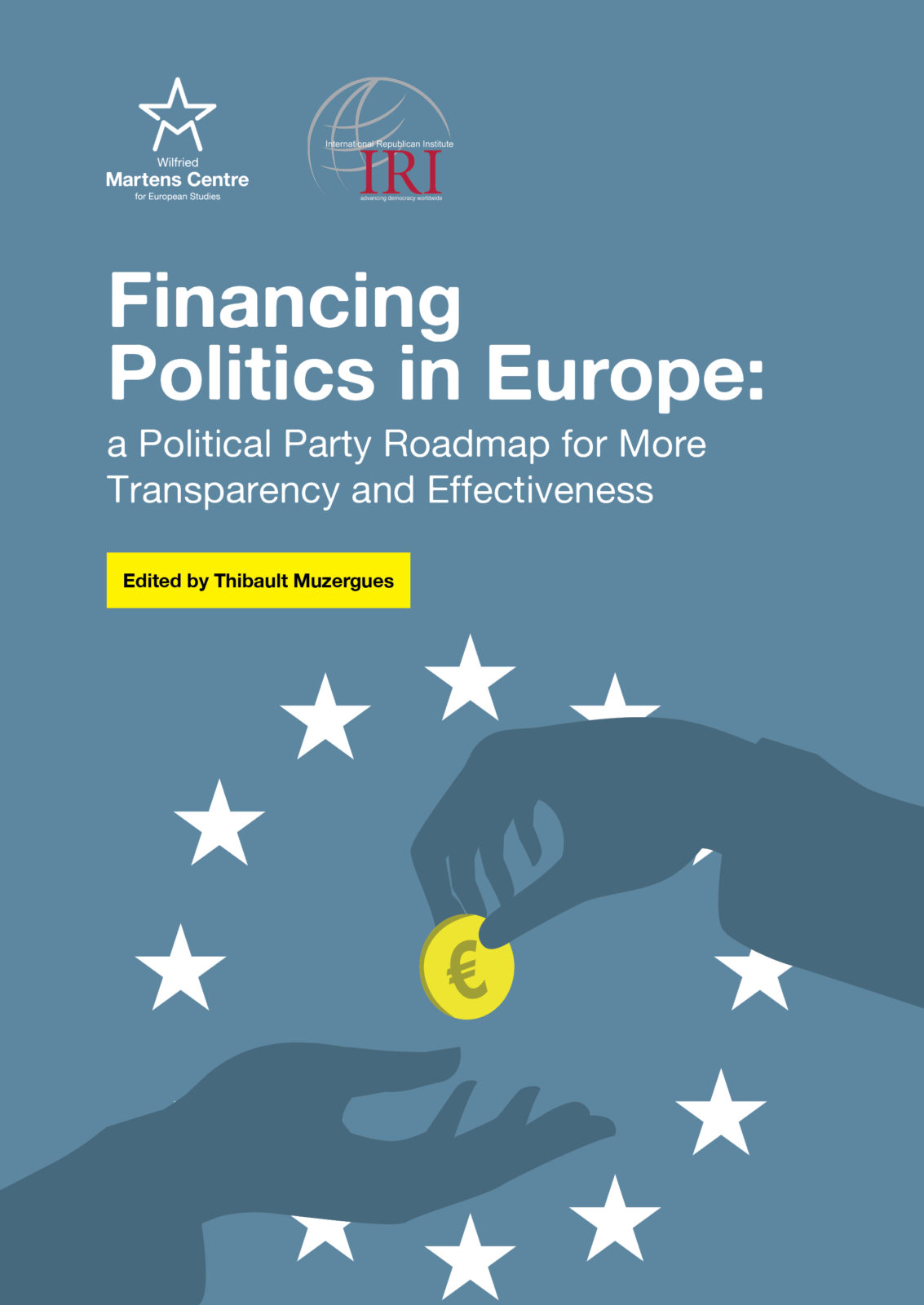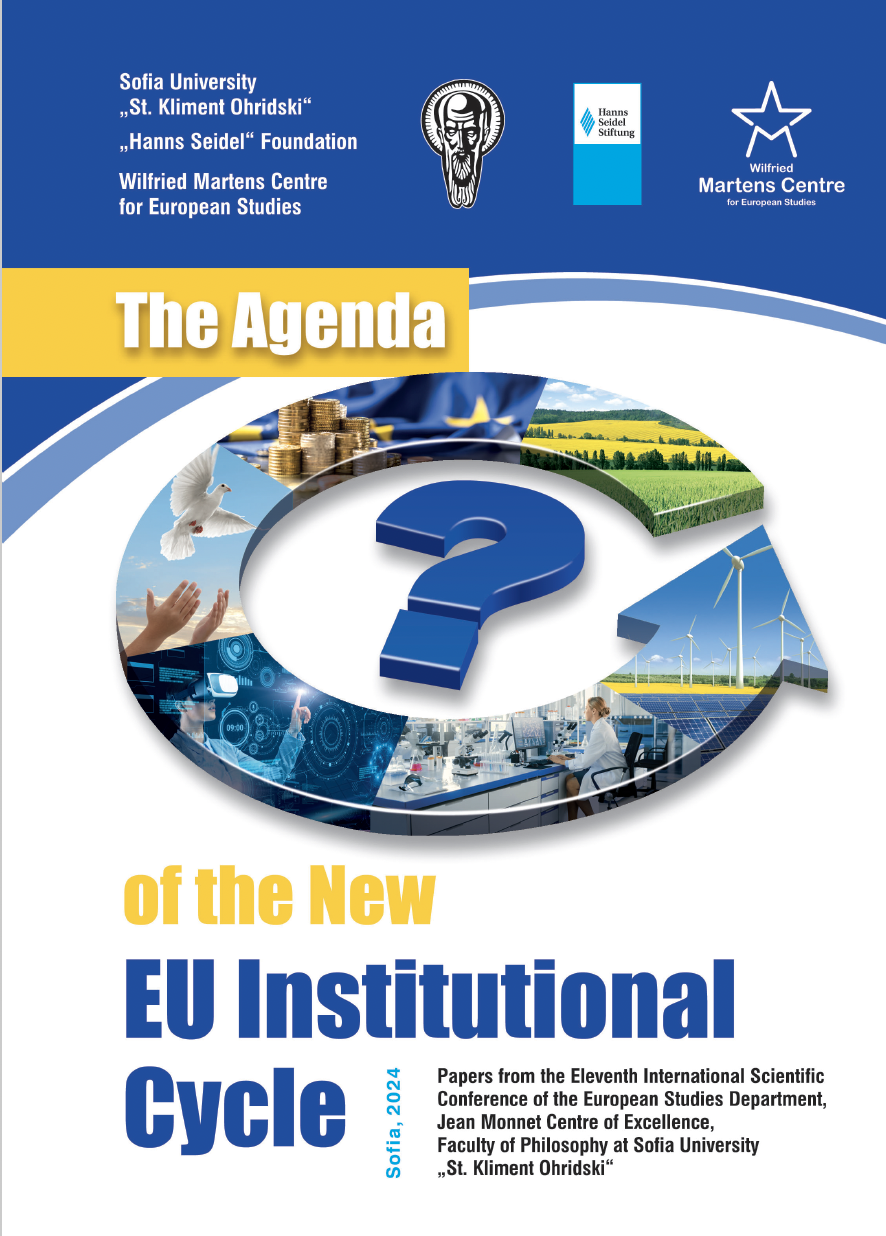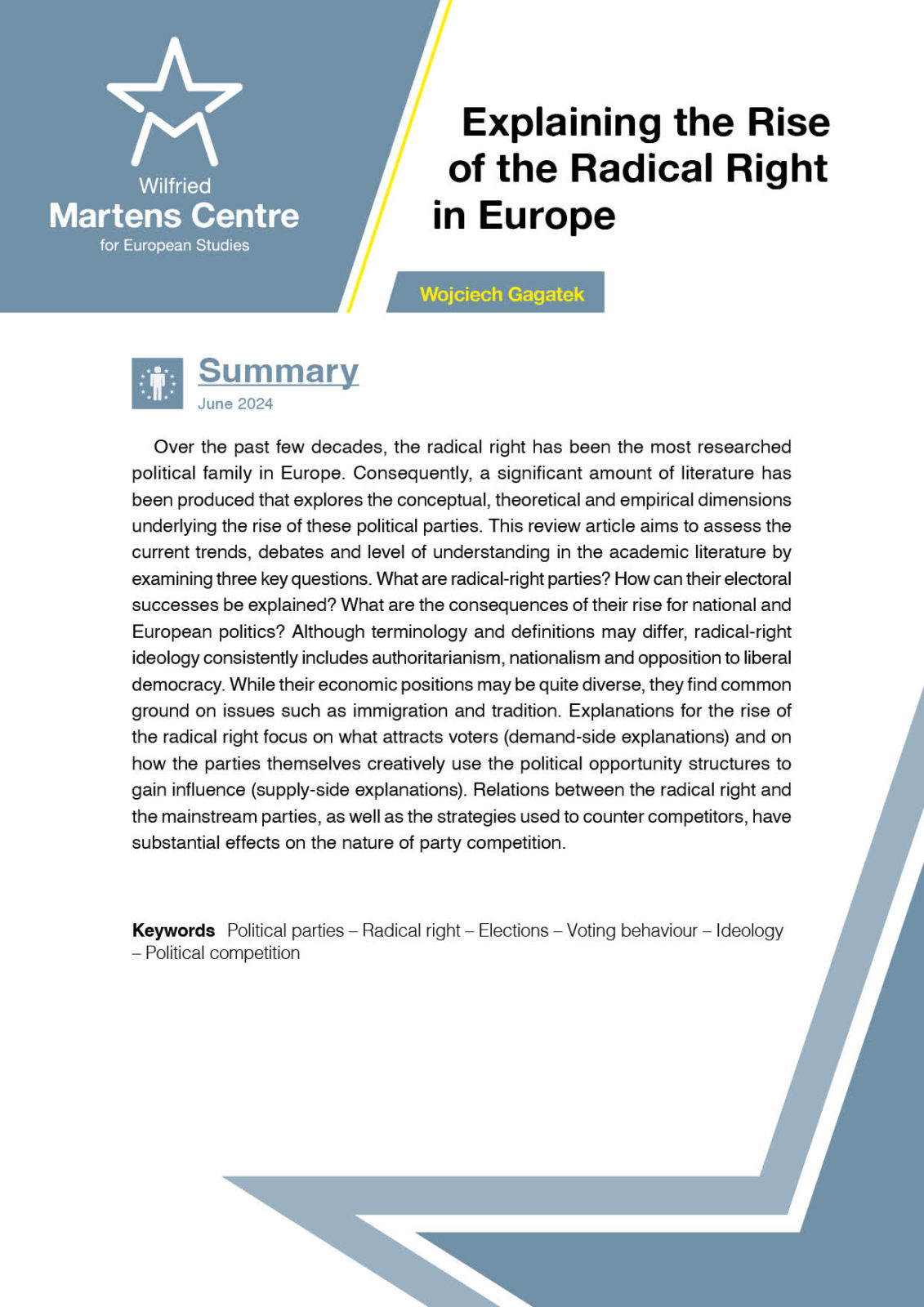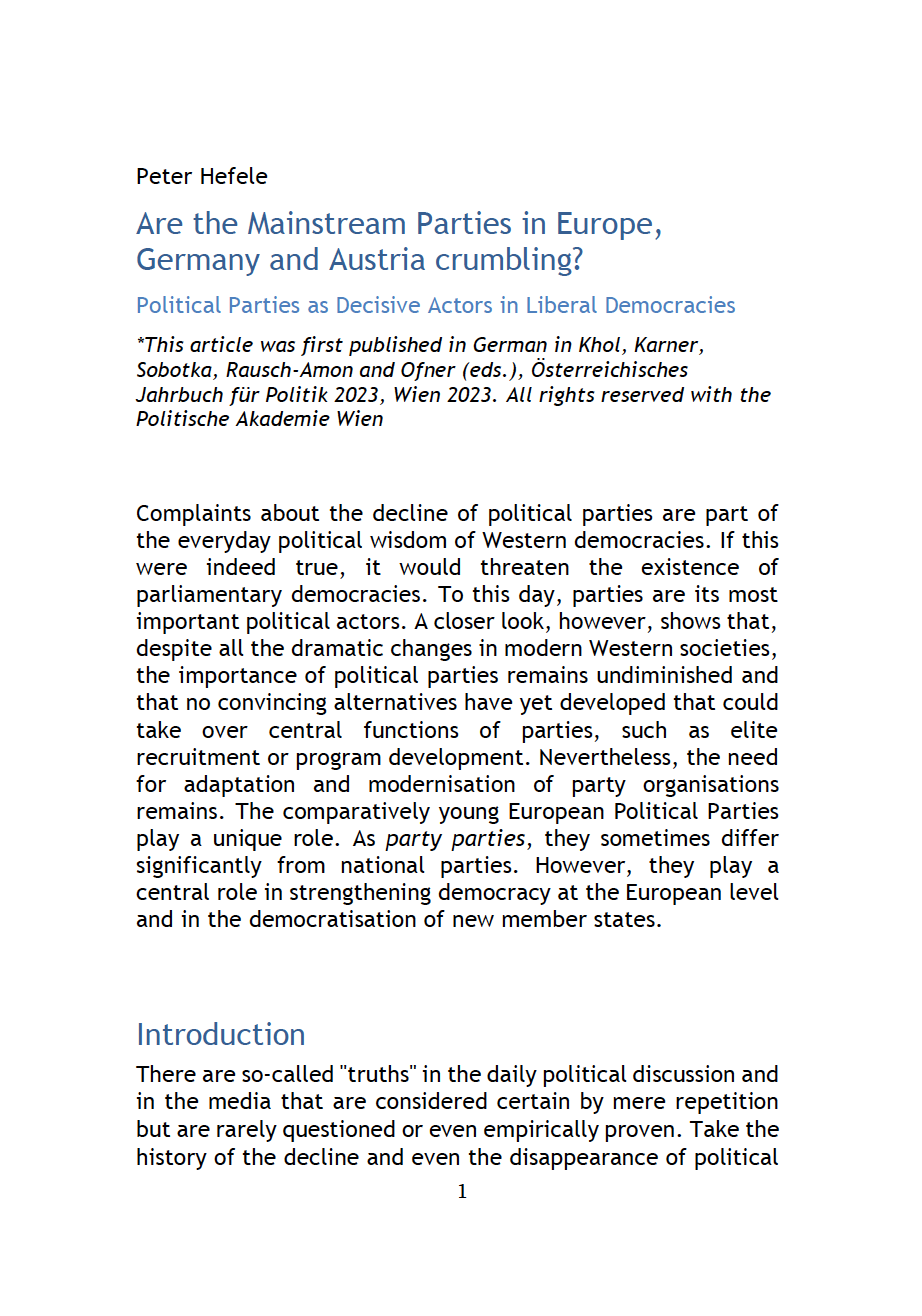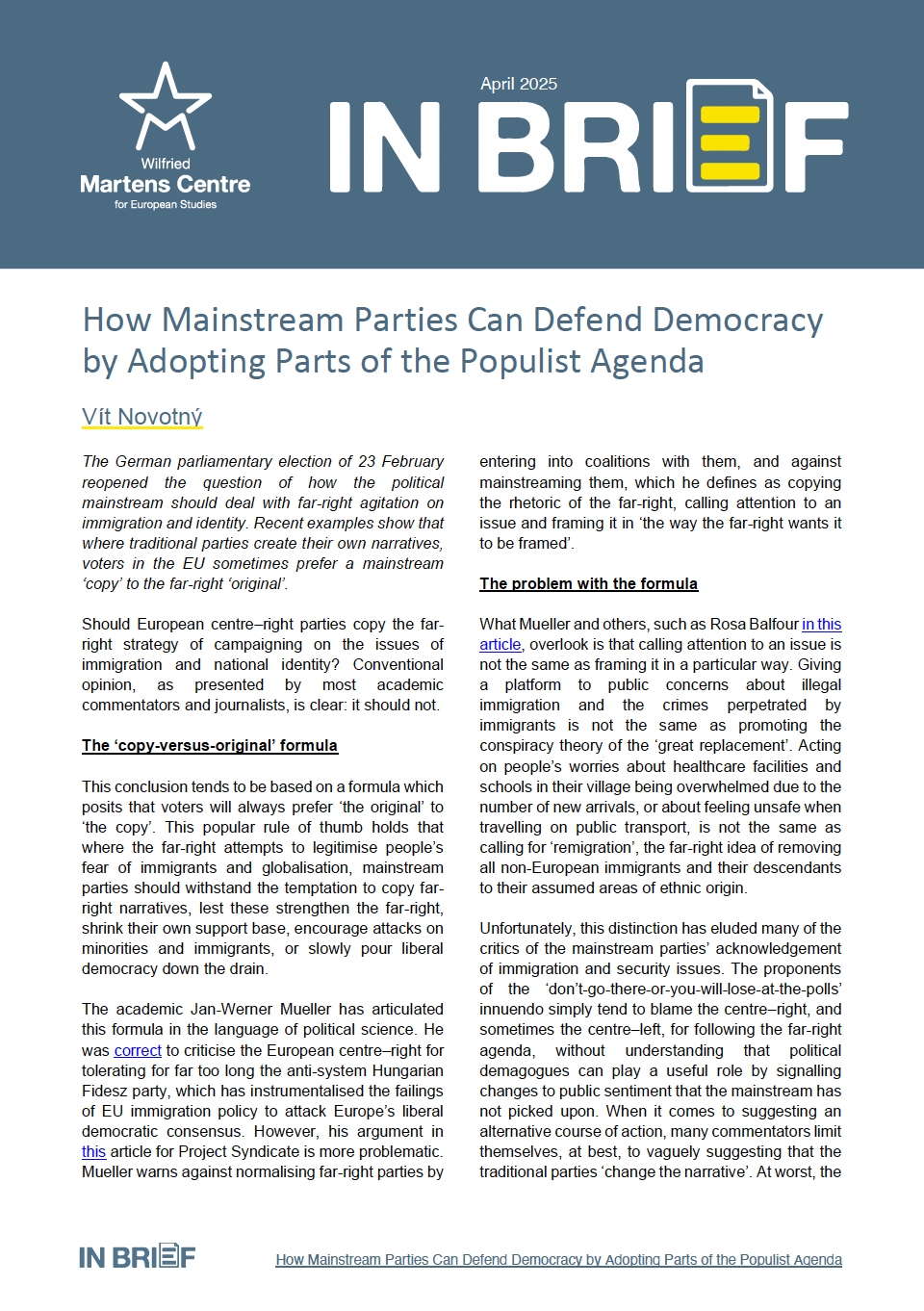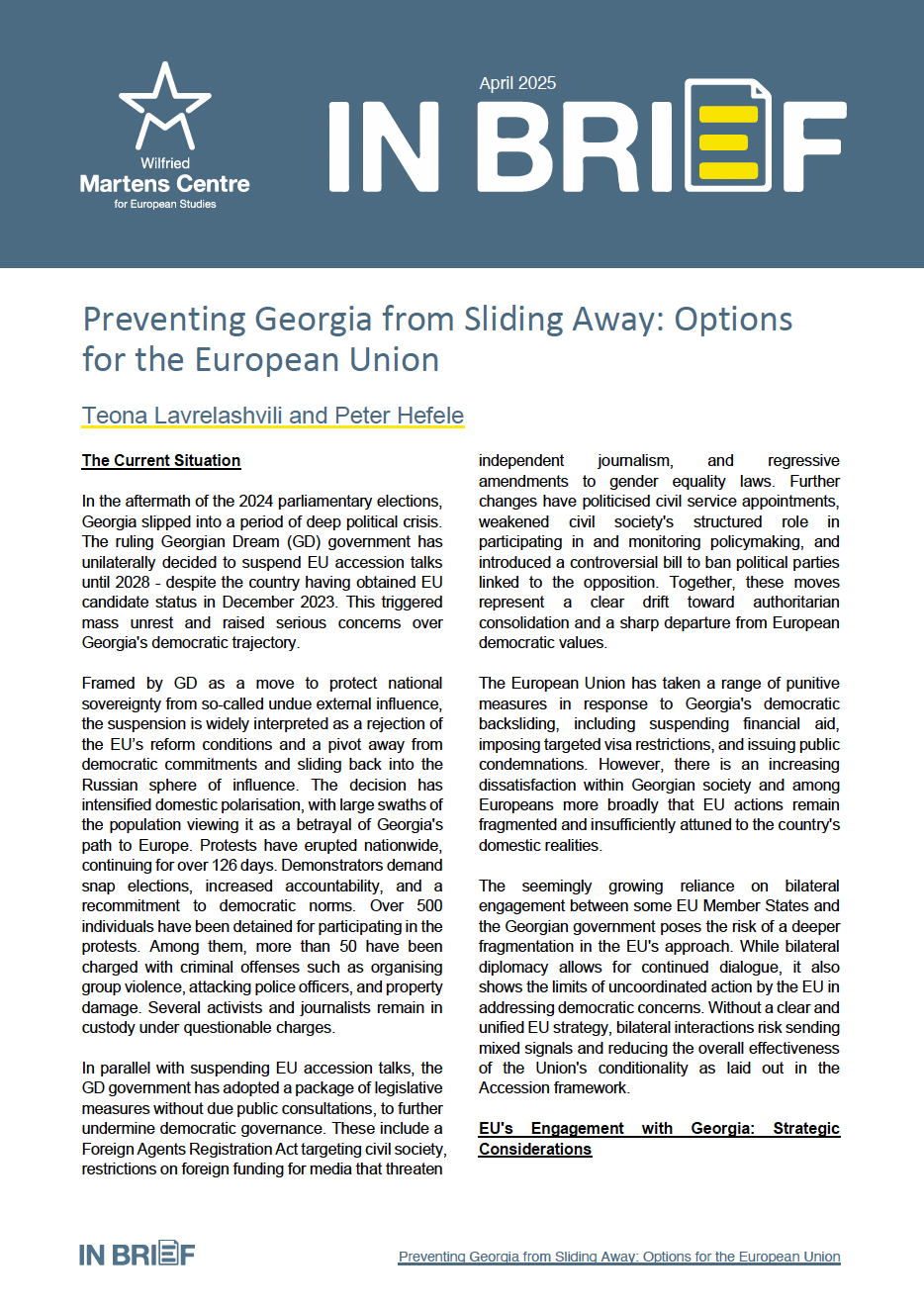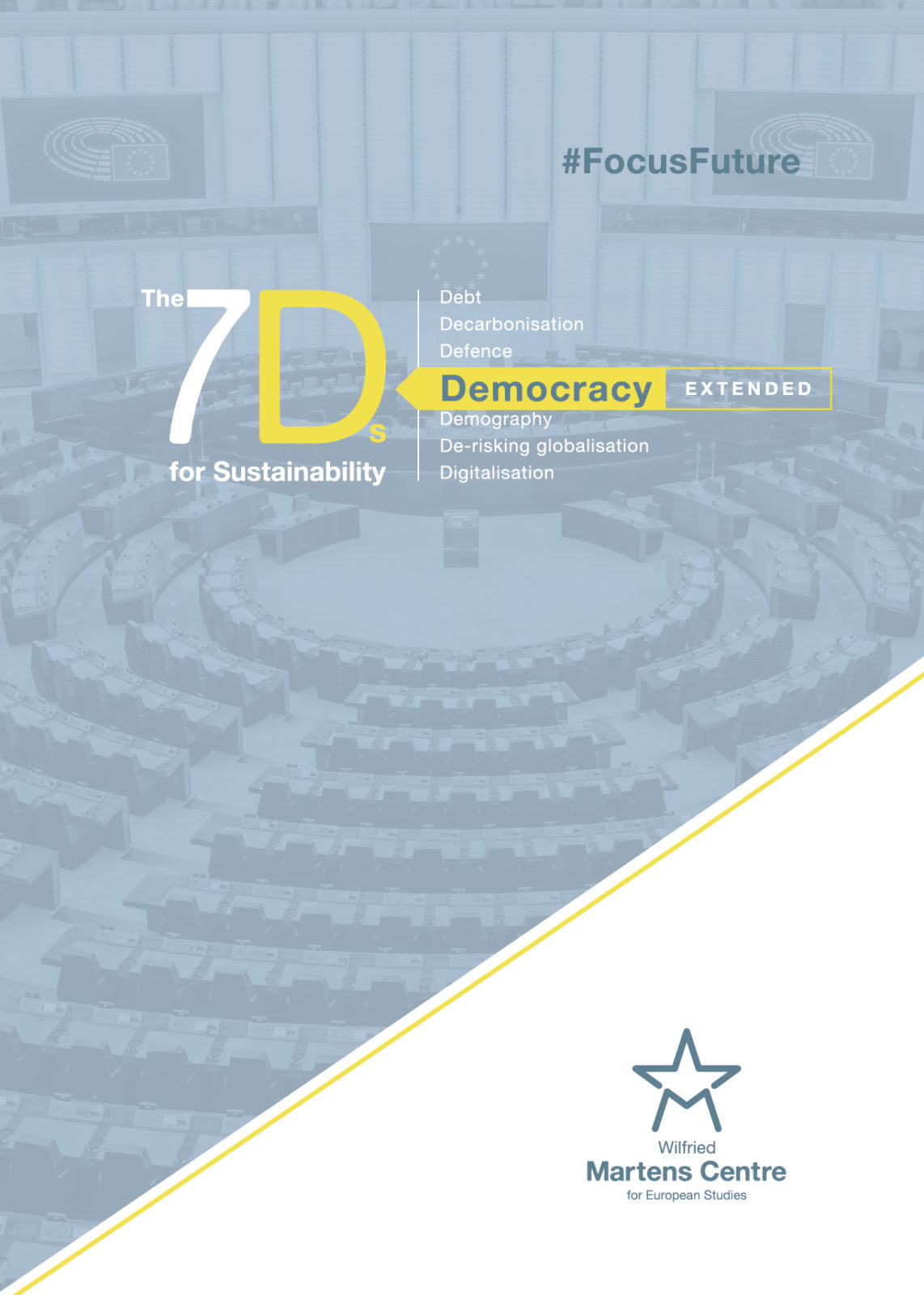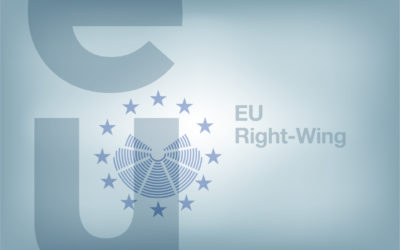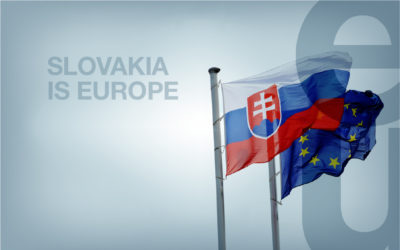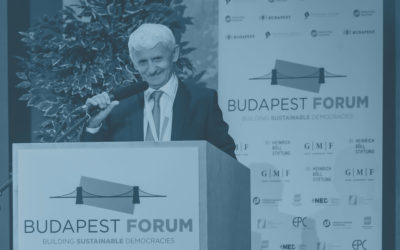Interparty Relations in the European Parliament 1952–2024: Between Cooperative and Adversarial Politics
09 September 2024
This paper examines trends in relations between party groups in the European Parliament since its inception, with a particular focus on the European People’s Party (EPP) and its prospective options for forging coalitions in the coming tenth legislative term. First, it traces the evolution of the two faces of intra-parliamentary relations in the European Parliament since its early days: cooperative and adversarial politics. Cooperation between the ‘core’ groups of the Socialists, Liberals and Christian Democrats has been the dominant guiding principle. The historical analysis explains why the European Parliament follows a different logic than most national parliaments and illustrates how this cooperation has played out.
The continued existence and relevance of the parliamentary core is demonstrated next. Despite a decline in the Socialists and Democrats (S&D) and EPP groups’ seat shares. the core has persisted and remained relevant. The analysis of data obtained by calculating two indices, the institutional relevance index and a newly developed political relevance index, demonstrates that, even if the core has shrunk, it has maintained a dominant role in the European Parliament.
The prospects for the core groups in the tenth term are then considered. Although the EPP would be well-placed to look for new partners and alliances on its own terms, the analysis suggests that embarking on such a course would be fraught with difficulty. The analysis of intra-group cohesion and intergroup agreement data found in the literature highlights the considerable difficulties that The EPP would encounter in pursuing anything more than sporadic cooperation on selected issues with other groups. Even without the S&D group, the EPP’s need to rely on Renew makes durable coalitions with groups such as the European Conservatives and Reformists or Identity and Democracy unlikely because of Renew’s low levels of agreement with these groups.
It is likely that the European Parliament’s incoming term will witness a continuity in intergroup relations. Therefore, the advantages of more conflictual relations between the core groups are limited, and cooperation can be expected to prevail.
ENJOYING THIS CONTENT?


